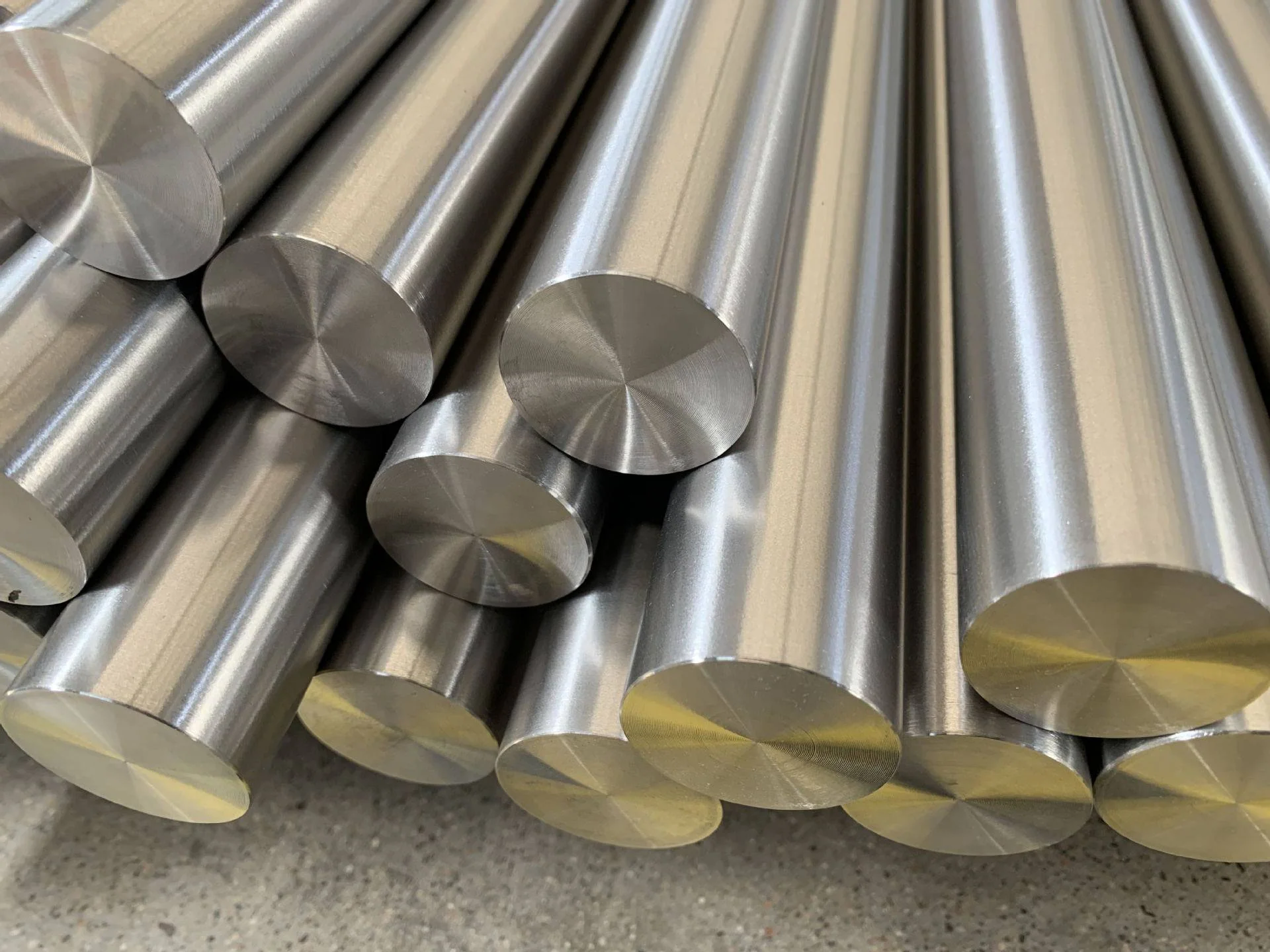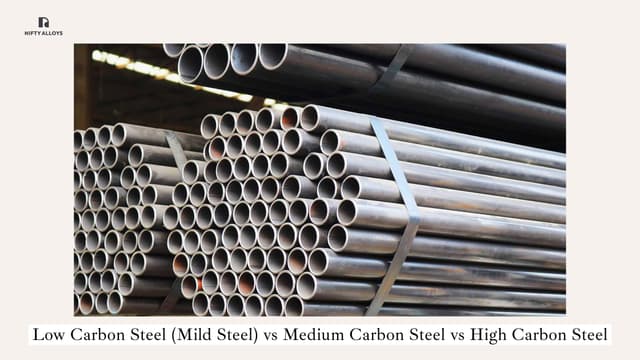D2 Tool Steel – Properties, Heat Treatment & Industrial Applications
In this article, we will explore the chemical composition, mechanical properties, heat treatment process, advantages, and wide range of industrial applications of D2 Tool Steel.

Tool steels are the backbone of industries that rely on high wear resistance, strength, and dimensional stability. Among the most widely used grades, D2 Tool Steel stands out as a versatile and reliable material. Classified as a high-carbon, high-chromium cold-work tool steel, D2 offers exceptional hardness and wear resistance, making it indispensable in tooling and industrial applications.
At Nifty Alloys, a trusted supplier of premium tool steels in Dubai, UAE, we provide D2 Tool Steel in different forms including bars, sheets, and blocks—ensuring quality and performance for demanding industries.
What is D2 Tool Steel?
D2 is a cold-work tool steel that contains high amounts of carbon (1.5–2.0%) and chromium (~12%). This unique composition provides it with excellent wear resistance, high hardness, and good toughness. Unlike simple carbon steels, D2 retains hardness even at elevated temperatures, making it suitable for heavy-duty tooling operations.
D2 belongs to the AISI-SAE tool steel classification system, categorized under “D-Series” cold-work tool steels, which are known for high chromium content and superior wear resistance.
Why D2 is Called a High Carbon, High Chromium Tool Steel?
D2 falls under the category of high-carbon, high-chromium tool steels because of its unique chemical makeup:
High Carbon Content (1.4 – 2.0%)
- Provides extreme hardness after heat treatment.
- Improves wear resistance by forming hard carbides.
- Enhances edge retention for cutting applications.
High Chromium Content (11 – 13%)
- Promotes corrosion and oxidation resistance (higher than standard tool steels).
- Increases hardenability and wear resistance by forming chromium carbides.
Enhances dimensional stability during heat treatment.
This balance of carbon and chromium makes D2 a semi-stainless tool steel—it resists corrosion better than carbon steels but not as much as full stainless steels like 17-4PH Stainless Steel.
The high-carbon, high-chromium combination also explains why D2:
- Retains sharp cutting edges under stress.
- Has superior wear resistance compared to grades like O1 Tool Steel.
- Offers longer tool life in cold-work operations.
Chemical Composition of D2 Tool Steel
| Element | Percentage (%) | Function |
|---|---|---|
| Carbon (C) | 1.40 – 2.00 | Provides extreme hardness, wear resistance, and edge retention. |
| Chromium (Cr) | 11.00 – 13.00 | Improves hardenability, enhances corrosion resistance, and forms hard chromium carbides. |
| Molybdenum (Mo) | 0.70 – 1.20 | Adds strength at high temperatures, increases toughness, and enhances wear resistance. |
| Vanadium (V) | 0.50 – 1.10 | Refines grain size, improves toughness, and contributes to abrasion resistance. |
| Manganese (Mn) | 0.20 – 0.60 | Enhances hardness and toughness, assists in deoxidation. |
| Silicon (Si) | 0.20 – 0.60 | Improves strength, assists in deoxidation during steelmaking. |
| Phosphorus (P) & Sulfur (S) | ≤ 0.03 | Kept low to avoid brittleness and ensure toughness. |
Key Properties of D2 Tool Steel
- High Hardness – After heat treatment, D2 can achieve hardness levels of 55–62 HRC, enabling superior cutting and wear resistance.
- Excellent Wear Resistance – The high chromium and carbon content provide outstanding wear resistance against abrasive and adhesive wear.
- Good Toughness – While not as tough as shock-resisting steels, D2 offers better toughness compared to other high-carbon grades.
- Corrosion Resistance – Its high chromium content gives D2 moderate corrosion resistance, higher than conventional tool steels but lower than stainless steels.
- Dimensional Stability – D2 retains its shape and size after heat treatment, making it ideal for precision tooling.
- Machinability – D2 is moderately difficult to machine due to its hardness, requiring specialized tooling and machining practices.
Heat Treatment of D2 Tool Steel
Proper heat treatment is crucial to unlock the full potential of D2 Tool Steel. The process includes:
1. Annealing
- Heat uniformly to 850–900°C.
- Hold for several hours, then furnace cool slowly.
- Results in a softened structure (~200 HB), making machining easier.
2. Hardening
- Preheat at 450–500°C, then at 850–900°C.
- Austenitize at 1,020–1,040°C.
- Quench in still air or oil.
3. Tempering
- Temper immediately after hardening to reduce brittleness.
- Typical tempering temperature: 150–500°C.
- Final hardness depends on the tempering range—higher temperatures reduce hardness but improve toughness.
4. Sub-Zero Treatment (Optional)
- Cooling to –70°C to –80°C enhances dimensional stability and reduces retained austenite.
Result: Properly heat-treated D2 Tool Steel achieves hardness of 58–62 HRC, excellent wear resistance, and stability.
Advantages of D2 Tool Steel
- Long tool life due to high wear resistance.
- Maintains cutting edges under heavy loads.
- Less distortion during heat treatment compared to other tool steels.
- Moderate corrosion resistance.
- Versatile across industries, from automotive to aerospace.
Industrial Applications of D2 Tool Steel
D2 is widely used in industries that demand wear resistance, hardness, and precision. Some key applications include:
1. Cutting Tools
- Punches, dies, and shears
- Blanking and trimming dies
- Industrial knives and blades
2. Molds and Dies
- Cold forging dies
- Plastic injection molds requiring wear resistance
- Powder compacting dies
3. Automotive Industry
- Components requiring high wear resistance and stability
- Tools for stamping and forming automotive parts
4. Aerospace & Defense
- Precision cutting and forming tools
- Structural components requiring dimensional stability
5. General Engineering
- Roll forming tools
- Measuring tools and gauges
- Wear parts exposed to high stress
D2 Tool Steel vs Other Grades
When selecting tool steels, it is important to compare D2 with other popular grades:
- O1 Tool Steel – Offers good machinability and toughness but lower wear resistance compared to D2.
- H13 Tool Steel – A hot-work tool steel that withstands high thermal fatigue, whereas D2 is optimized for cold-work.
- EN19T Alloy Steel – Offers high tensile strength and toughness but does not match D2 in wear resistance.
This comparison shows that D2 is ideal when wear resistance and dimensional stability are critical.
Machining and Fabrication Guidelines
- Use carbide cutting tools for machining hardened D2.
- Preheat before welding to avoid cracking.
- Grinding requires coolant to prevent thermal stress.
Ensure stress relieving after heavy machining operations.
Equivalent Standards of D2 Tool Steel
D2 Tool Steel is recognized worldwide under different specifications and standards. These equivalents help engineers and manufacturers source the right grade across regions:
- AISI/SAE (USA): D2
- DIN (Germany): 1.2379
- BS (United Kingdom): BD2
- JIS (Japan): SKD11
- ISO: X153CrMoV12
While all these standards refer to the same family of tool steels, slight variations may exist in composition tolerances depending on regional specifications. Regardless, they all deliver the same performance characteristics of high hardness, wear resistance, and dimensional stability.
These equivalents ensure global availability and consistency across industries.
Why Choose Nifty Alloys for D2 Tool Steel?
At Nifty Alloys, we are a leading stockist and supplier of tool steels in the UAE, delivering international-grade materials, including DIN 1.2379, X153CrMoV12, and JIS SKD11 equivalent products sourced from reputed mills with full mill test certificates (MTCs). Our expertise ensures that customers get the right material for their applications.
- D2 Tool Steel Bars, Sheets & Blocks
- Heat treatment support and technical guidance
- Global shipping with quick delivery timelines
Available Sizes of D2 Tool Steel
At Nifty Alloys, we supply D2 Tool Steel in a wide range of diameters to meet diverse industrial requirements.
Available Diameter Range:
> 31 mm to 110 mm
Custom sizes, cut lengths, and special machining services are also available on request to match your specific project needs.
For related requirements, explore our other grades:
Conclusion
D2 Tool Steel is a high-performance material widely chosen for cutting tools, dies, and wear-resistant components. With its exceptional hardness, wear resistance, and dimensional stability, it continues to be a cornerstone of industrial tooling. Proper heat treatment and machining practices ensure maximum service life.

17-4PH Stainless Steel (AISI 630 / UNS S17400) is a precipitation-hardening martensitic grade known ...

EN19 / 42CrMo4 Alloy Steel is a high tensile chromium-molybdenum steel known for its excellent stren...

At Nifty Alloys, we stock Inconel 625 sheets, plates, bars, pipes, and forgings, ensuring customers ...

Each type has unique properties and applications. In this blog, we’ll compare low, medium, and high ...

Elevate Your Projects with
with
 Our Superior Steels
Our Superior Steels





